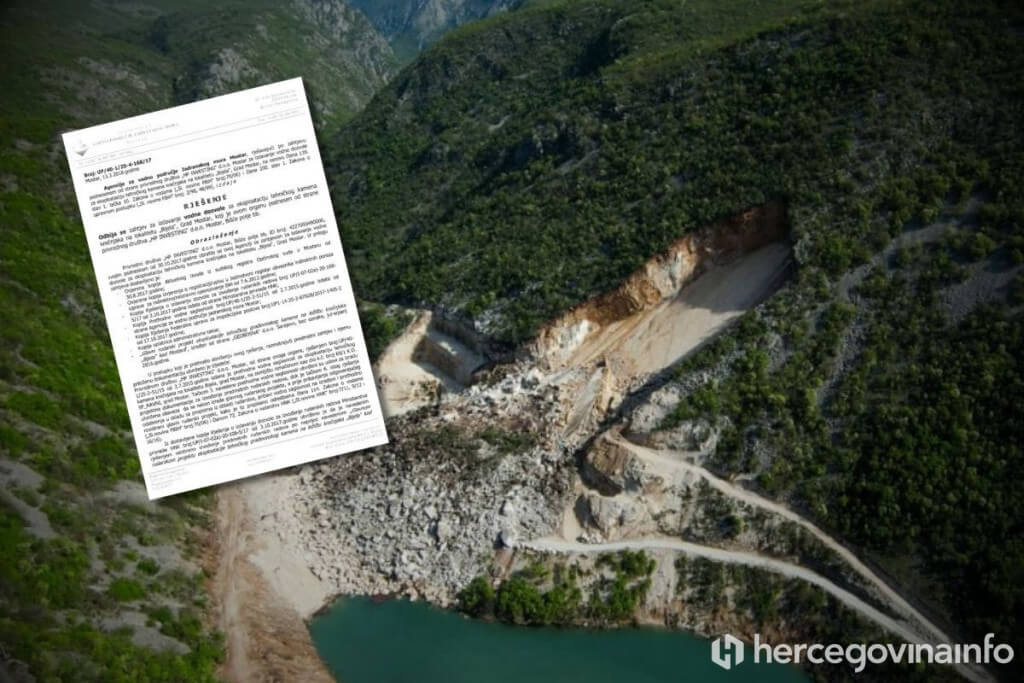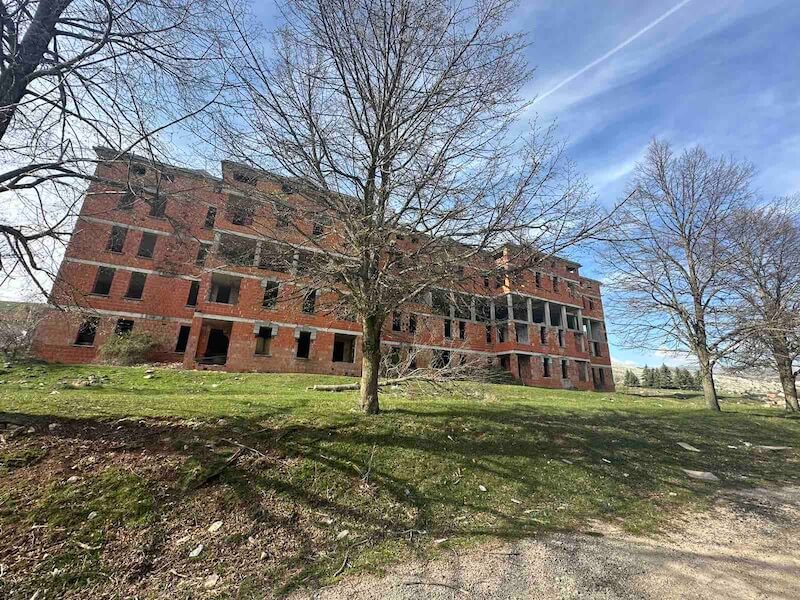Mostar company HP Investing, which caused a genuine ecological catastrophe by mining the quarry in Bijela, has never obtained water permit necessary for the operations.
This type of quarry falls under mining sector’s jurisdiction, and it requires a permit in order to commence exploitation. Hercegovina.info provides information chronologically, detailing HP Investing’s permit requests and their subsequent denials, while also explaining how they skipped the steps in the process to obtain legal regulation.
The documents than need to be obtained before commencing any operations entails three stages: preliminary water approval, water approval and water permit.
HP Investing initially obtained the preliminary water approval, but their request for a water permit was rejected by the Agency for the Watershed of the Adriatic Sea at the subsequent stage. The company from Mostar appeared undeterred by the expert rejection and bypassed the final permit by instead applying for a water approval, which constitutes the second stage in the permit acquisition process, having stayed either consciously or not at that stage. However, the water approval they were boasting about didn’t hold much significance.
Let’s start from the beginning.
2015 – preliminary water approval
The first and initial step for HP Investing was in 2015 when the Agency for the Watershed of the Adriatic Sea, located in Mostar, issued preliminary water approval. This permit/approval is actually valid for three years, and contains requirements for the project documentation such as hydrogeological surveys and submission of a detailed documentation for the next steps. It was already then, nine years prior to the ecological catastrophe we have all witnessed that the Agency for the Watershed of the Adriatic Sea issued a warning to HP Investing. They emphasized the necessity for the exploitation field to be situated above the maximum operational level of the Salakovac hydropower plant, and also stressed the importance of planning appropriate technical solutions to prevent soil displacement and landslides.
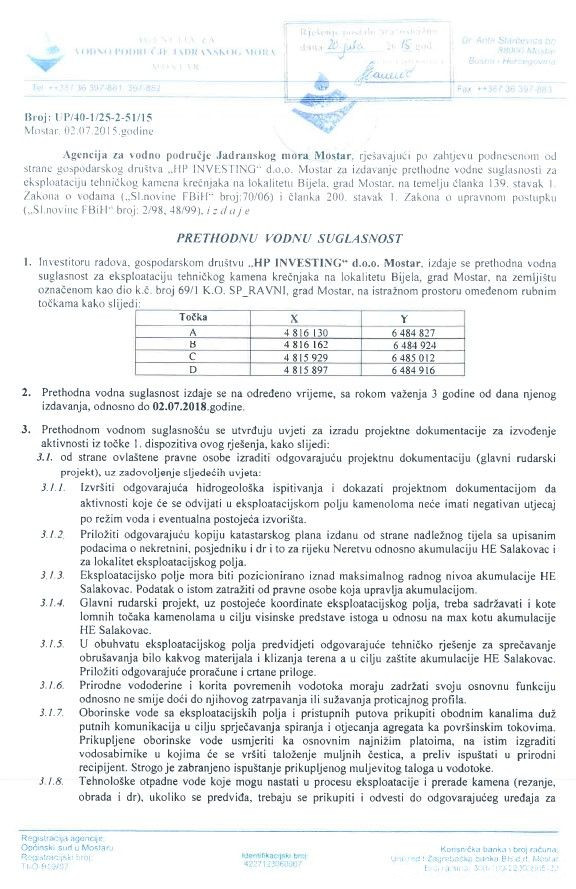
The engineers were aware of the problematic area.
The preliminary water approval from the Agency for the Watershed of the Adriatic Sea required HP Investing to thoroughly minimize the potential impact of rock exploitation on surface and underground streams. The investor was also required to plan appropriate measures to prevent damages or adverse impacts on the water, which otherwise would need to be compensated for by the investor.
March 2018 – key step: Water permit denied to HP Investing
As mentioned earlier, the company from Mostar should have initially applied for water approval. However, they opted to directly pursue the water permit, which ultimately proved to be highly problematic for the company.
The Agency for the Watershed of the Adriatic Sea had on March 13, 2018 denied HP Investing’s water permit request for exploitation of technical limestone at “Bijela” location in Mostar. Official documents reveal that HP Investing initiated work at this location without the necessary documentation. Specifically, an inspection conducted in 2017 identified an open-cast pit for the exploitation of construction limestone and determined that the exploitation activities were in their initial stages.
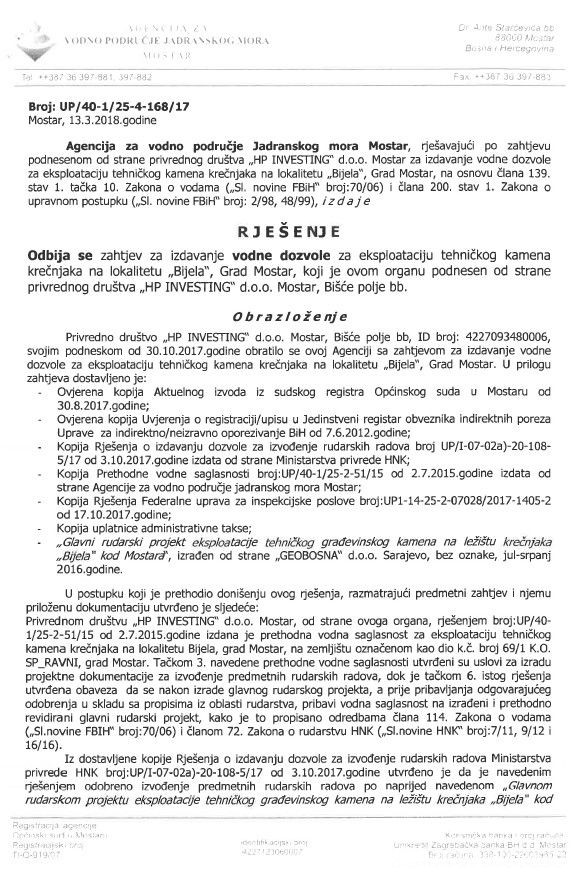
Why they did not get necessary permits?
The Agency for the Watershed of the Adriatic Sea concluded that HP Investing is not meeting several conditions for a water permit (stage 3), which they were to meet by the preliminary water approval (stage 2). Thus, the company of Haso Pekušić commenced rock exploitation without valid documents and permits, whilst trying to get “the papers” in the meantime.
The decision’s rationale stated that the main mining project failed to meet conditions regarding the exploitation field. Specifically, no technical solution was planned to prevent soil displacement and landslides, which are essential for safeguarding the Salakovac hydropower plant’s reservoir. Moreover, accompanying calculations and drawings to minimize the impact of rock exploitation on the Salakovac hydropower plant were not provided.
May 2018 – water approval
After being rejected by the Agency for failing to meet the conditions necessary for a water permit, essential for their operations, HP Investing likely opted for a tactic of gathering as much documentation as possible. Consequently, they circled back to the second stage and requested a water approval, which was granted to them by a decision dated May 29, 2018.
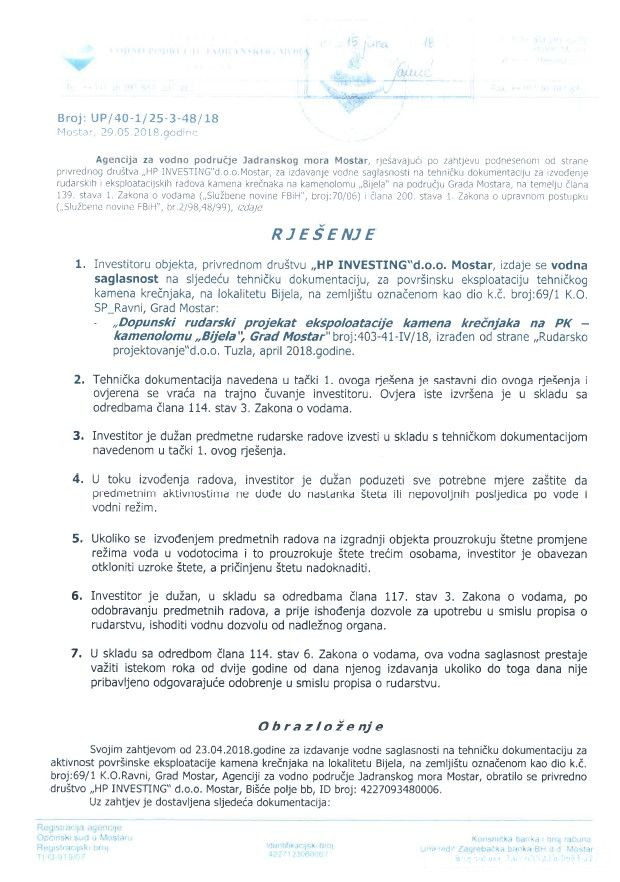
After regrouping, HP Investing had acquired two-thirds of the necessary documentation. However, in simple terms, the first two stages were merely “warmups” for the water permit application, which they evidently could not obtain. The competent and evidently professional Agency for the Watershed of the Adriatic Sea demanded assurance that the project would not endanger the untouched nature of the northern part of Mostar’s municipality. The concerns raised by the engineers would be proven correct six years later. However, it wasn’t something that the Government of Herzegovina-Neretva Canton, headed by Neveko Herceg and Minister Željko Laketić, dwelled on extensively. They granted a concession for a period of 21 years.
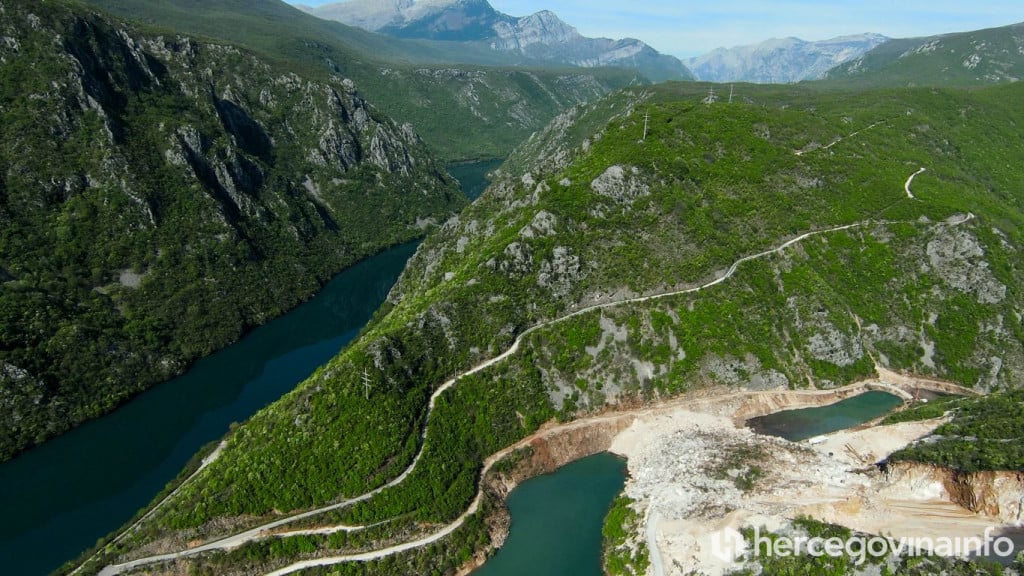
After obtaining the water approval, HP Investing never again applied for a water permit, essential for their operations. Since then, they have been exploiting rocks at Bijela location without the necessary water permit.
HP Investing has still not responded to our inquiries or inquiries from other colleagues interested in this case.
(Hercegovina.info)



